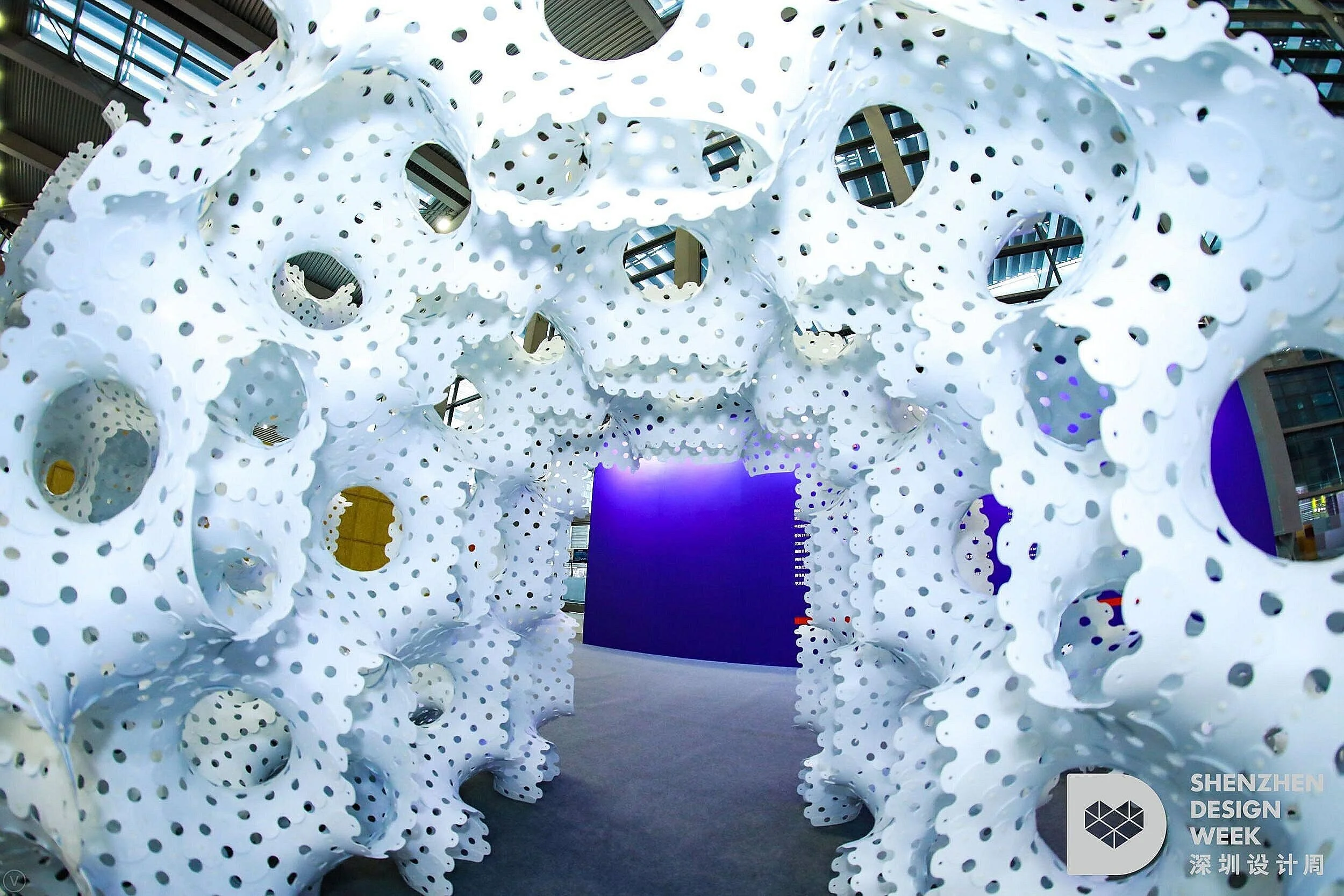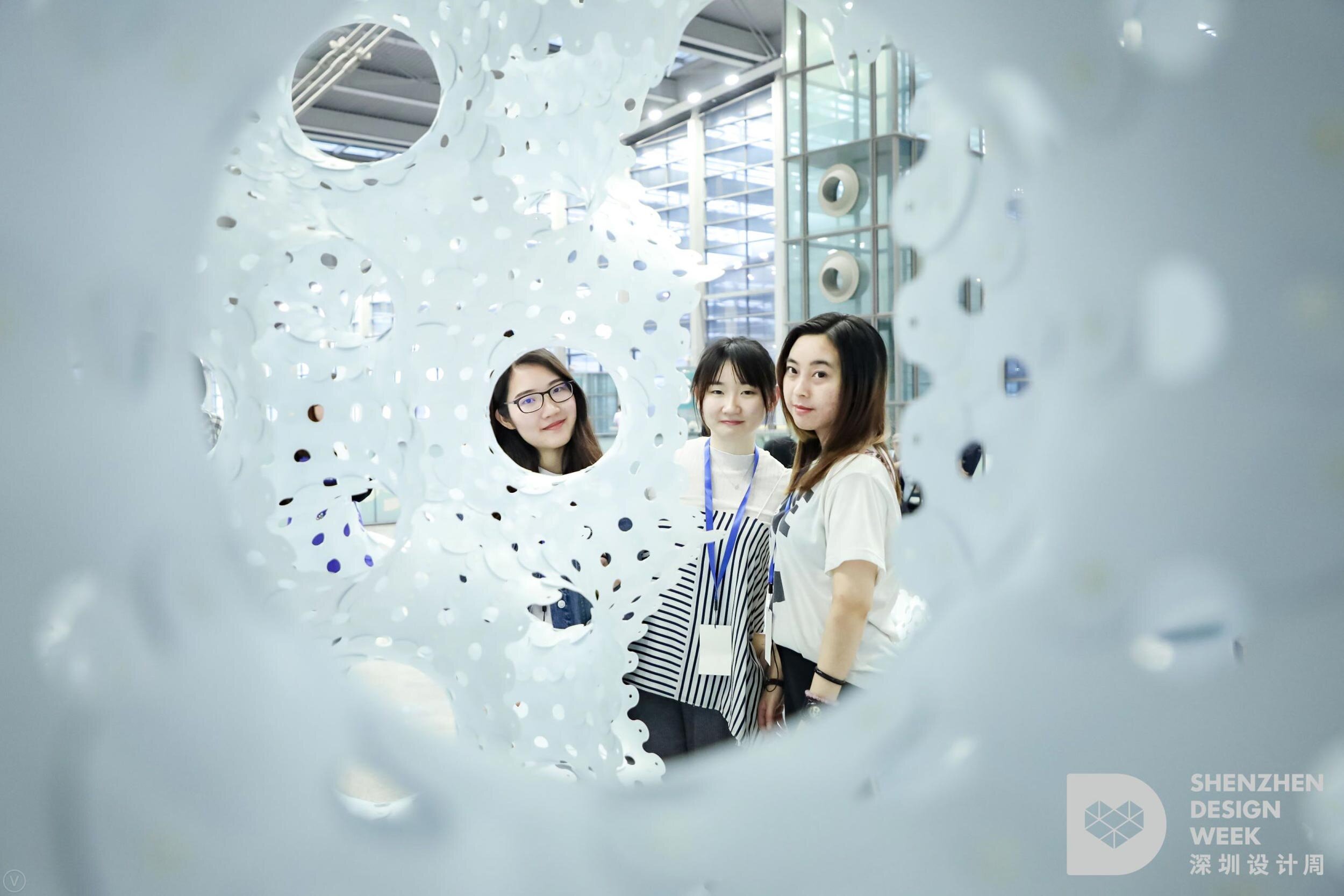
MINIPLEX 1.2 SHENZHEN
An ever-changing piece of design that can be endlessly re-configured into different new arrangements and adapt to its context
MINIPLEX 1.2
MINIPLEX is a modular system designed by Vlad Tenu, consisting of a single type of components: identical flat pieces that can be connected and re-combined, organically growing into very complex geometric structures. The modules can be made of a variety of materials and, through simple rules of symmetry, they can be assembled into an infinity of possible shapes, just like a Lego brick or a 3D puzzle. The system is born from the idea of an ever-changing piece of design that can be endlessly re-configured into different new arrangements and adapt to its context. The idea of a demountable system allows for the recycling and reuse of all the components.
Version 1.2, the third installation of Miniplex, was especially re-configured as an interior installation for the London Pavilion at the Shenzhen Design Week 2019, curated by the Chartered Society of Designers. The exhibition also contained a prototype of the aluminium version of Miniplex 2.0.
Miniplex 1.0 is a prototypical edition which was initially supported, produced and installed by AHMM for City Centre’s Youth Programme 2017, an educational initiative in collaboration with City Centre London. The pavilion was installed in Paternoster Square and it was included in the itinerary of London Festival of Architecture 2017. Subsequently, the same modular system has been reconfigured for several other events and exhibitions such as PLUG-IN-TO-THE-FUTURE. Changing approaches to design at ARUP Phase 2 Gallery in 2018, a permanent installation as a decorative dividing wall at ARUP’s headquarters in London in 2019 and the FPS London ULTRA Exhibition at the OXO Bargehouse in London 2019.
Why modular?
Having sustainability as a core principle, the modular system is born from the idea of an ever-changing piece of design that can be endlessly re-configured into different new arrangements and adapt to its context. The idea of a demountable system allows for the recycling and reuse of all the components, which become a new ‘smart material’’.
Due to the remarkable structural properties of this type of geometry, relatively large scale objects can be built with modules made from a variety of very thin materials. These structures behave similarly to space trusses, being robust and very lightweight at the same time.






A voxel based space
The proposed installation for the London Pavilion at the Shenzhen Design Week 2019 took one afternoon to assemble, as part of a creative workshop with a team of enthusiastic volunteers. Starting from pre-assembled saddle shaped pieces, the team has learned about the versatility of this modular system by creating square voxels, a form of 3D pixels or Miniplex cubes, as basic units representing the masonry blocks for any desired shape for the pavilion. Walls and roofs were developed into a meandering assembly of connected Miniplex arches which illustrated very well the underlying rigour of this system and the opportunities for developing it into low-res discrete assemblies of any given geometry.











Special thanks go to the Chartered Society of Designers, Frank Peters, Carmen Martinez-Lopez, the organisers at Shenzhen Design Week and the amazing volunteers in the assembly team!




